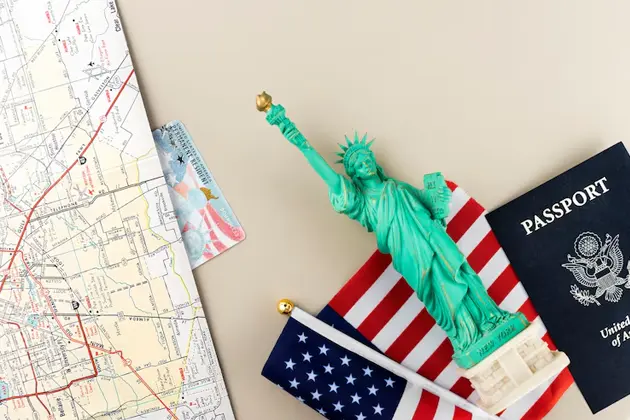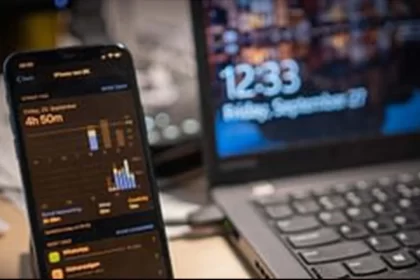A new visa bulletin released recently has made some significant changes to visa rules. USCIS, in close collaboration with the Department of State, has revised the procedures for determining visa availability for applicants seeking to file for employment-based or family-based status adjustment. The revised processes are expected to better align with procedures adopted by the Department of State for foreign nationals seeking permanent residency in the US through immigrant visas at US consulates and embassies.
With big changes in 2025, the visa landscape of the country has undergone aggressive immigration transformations by the Trump administration. The CEO Views discusses the top 10 changes in the US visa policy in 2025.
Top 10 Changes in US Visa Rules in 2025
As the Trump administration undertook an aggressive immigration stance in association with the State Department, significant changes like cancelled student visas, closure of the support office for visa holders, and others have caused a dramatic transformation in the visa application and renewal processes. Below are the big changes that changed the visa landscape of the US-
-
Student Visa Revocations
The immigration crackdown conducted by the Trump administration has brought about an unsettling situation for foreign students studying or aspiring to study in the US. Reports have confirmed that over 300 student visas have been revoked throughout the country. It was done by targeting students at prestigious institutions like Harvard and Stanford. Speeding tickets are given as justification behind this stern step taken by the US government, with the Department of State. This whole incident has caused confusion and outrage among students.
-
End of OPT
The Optional Practical Training (OPT) Program, permitting F-1 students to work in the US after graduation, has also faced potential elimination. With the new legislative proposals, this program is being scrapped in the country. This is forcing many students to accelerate their H-1B applications or look for opportunities in other countries, abolishing the career path of many.
-
Strict F-1 Visa Scrutiny
The recent tightening of F-1 visa scrutiny has become a threat to many Indian students seeking to study in the US. The F-1 visa is designed for international students to study in the US at an accredited college, university, or other academic institution. Over 331,600 Indian students studying in the US faced a decline in F-1 approvals during 2023-2024. Now, with heightened scrutiny and a 41% rejection rate in 2024, it indicates more turmoil for students ahead. The changes in visa law are causing delays in the approval process and are strictly demanding financial proof to get the approval.
-
H-1B Travel Warnings
H-1B visa holders are non-immigrant foreign workers who are permitted to work in the US in specialty occupations requiring a bachelor’s or equivalent degree. The biggest tech employers are cautioning H-1B visa holders against international travel due to uncertainties in policies and processing backlogs, as seen in the visa issuance department. Some companies have started issuing internal advisories advising staff to take non-essential travel until the situation stabilises.
-
South Sudanese Visa Ban
The Department of State for visa processing banned all South Sudanese nationals’ visas due to a repatriation dispute. This measure indicates a new precedent in targeting specific nationalities.
-
The Catch and Revoke Program
Under the catch and revoke program, AI-assisted reviews of social media are being used to cancel visas of students who are associated with any campus protests (often called ‘anti-Semitic’). In this scenario, legal challenges are surfacing in response.
-
Shutdown of CIS Ombudsman
Visa holders in the country are denied a critical support channel with the closure of the Citizenship and Immigration Services. This closure is raising concerns about transparency and assistance in navigating complex issues concerning visa issuance and renewal.
-
Updating of Policy Manual
The United States Citizenship and Immigration Services (USCIS) department has revised its policy manual to recognize only two biological sexes. This signals a broader ideological shift affecting the visa application process involving gender identity. Policy advocates warn about additional hurdles that this step may cause for transgender and non-binary applicants in the US immigration system.
-
H-2B Cap Achieved
The H-2B visa program has a cap of 66,000 visas per fiscal year, among which 33,000 are for the first half and the rest 33,000 for the second half. The USCIS department has reached the cap for the second half of the 2025 fiscal year, requesting employment before October 1 of the same year.
As the supplemental filing dates are announced, they reflect a heightened demand and stricter limits on temporary workers. The early exhaustion of the cap reflects ongoing labor shortages in seasonal industries like hospitality, seafood processing, and landscaping, which largely rely on H-2B workers.
-
Repression of Exchange Visitor
Cases like the revocation of a Harvard researcher’s visa over undeclared frog embryos highlight a stricter approach to J-1 visas. The J-1 visa is a non-immigrant visa that allows foreign nationals to participate in approved exchange visitor programs in the US, such as studying, teaching, or researching.
However, the stricter approach has highlighted that even minor errors can lead to severe consequences in such cases. It has heightened scrutiny of academic and research-based exchanges, making scholars more concerned about unintentional errors.










